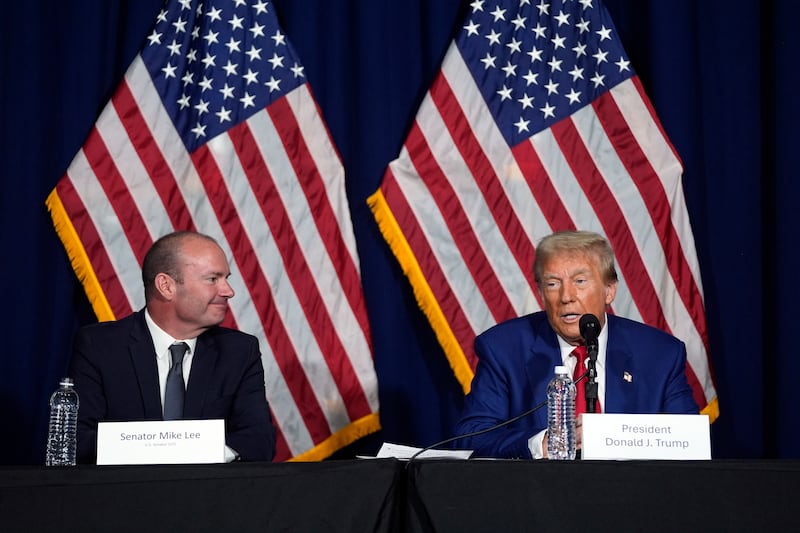President-elect Donald Trump has already named key members of his administration, like Susie Wiles for chief of staff and Rep. Elise Stefanik for United Nations ambassador. But he hasn’t named an attorney general yet.
The U.S. attorney general is a position that requires confirmation by the U.S. Senate. Vice President-elect JD Vance has said it is the most important job after president in the Trump administration.
Early Tuesday morning, Fox News published a short list of potential contenders that includes Utah Sen. Mike Lee; John Ratcliffe, former director of national intelligence; Mark Paoletta, former Trump administration member; Missouri Attorney General Andrew Bailey and Matt Whitaker, former acting U.S. attorney general. CNN reported Texas Attorney General Ken Paxton is also a potential pick.
The Washington Post’s list of top contenders last updated Tuesday names Paoletta, Whitaker and Paxton — with no one else listed. As early as March, Trump told Fox 4 Dallas-Fort Worth that he would consider Paxton for the job. “We have a lot of people who want that people and will be very good at it. But he’s a very talented guy,” Trump said about Paxton.
Another name that has been floated, including by Politico, is Jeff Clark, former United States assistant attorney general.
Lee, for his part, has said he’s been in frequent contact with Trump’s transition team, but he doesn’t want to leave the U.S. Senate — “I have the job I want,” Lee told the Deseret News last week.
Lee added he’s looking forward to implementing Trump’s agenda in Congress. Instead of vying for a Trump administration post, Lee, chair of the Senate Steering Committee, has taken a leading role in the debate over who will replace outgoing Senate Minority Leader Mitch McConnell. Republicans will have a majority in the Senate in the next Congress.
Sen. Eric Schmitt, who used to be Missouri’s attorney general, reportedly withdrew his name from consideration. The Hill reported Schmitt will help Trump with getting judges confirmed and advancing Trump’s agenda in the Senate.
With Trump as president, Republicans controlling the Senate and a new attorney general on the horizon, it’s most likely the federal cases against Trump will come to an end. When conservative radio host Hugh Hewitt asked Trump if he will pardon himself or fire special counsel Jack Smith, he said he’d fire Smith.
“We won the documents case,” said Trump. “We’re in the process of winning all the other cases, I think. Even sometimes when we have to go to appeal. We got immunity at the Supreme Court. It’s so easy. I would fire him within two seconds. He’ll be one of the first things addressed.” While Trump probably can’t technically fire Smith himself, he could ask one of his Justice Department appointees to do it.
In an interview with ABC News, Vance said over the last three-and-a-half years, the country has seen “politically-motivated after politically-motivated prosecution.
“I’d like us to just get back to a system of law and order where we try to arrest people when they break the law, not because they disagree with the prevailing opinion of the day,” said Vance. He also said Trump would not prosecute his political enemies (adding that Trump didn’t do that during his first term).
“He said that people who violated our election laws will be prosecuted. I think that’s the administration of law,” Vance said about Trump.
A Department of Justice attorney, speaking anonymously to Politico, said lawyers within the department are afraid “that career leadership and career employees everywhere are either going to leave or they’re going to be driven out.”
Paoletta, who served in the first Trump administration and is reportedly being considered for attorney general, responded to the story on X. He said attorneys at the Department of Justice may be working on positions Trump campaigned on like abolishing DEI and “prevent(ing) sanctuary cities from obstructing federal immigration enforcement.”
“If these career DOJ employees won’t implement President Trump’s program in good faith, they should leave,” said Paoletta. “Those employees who engage in so-called ‘resistance’ against the duly-elected President’s lawful agenda would be subverting American democracy.”
He said engaging in “resistance” behavior could be subject to disciplinary action, including being fired.


